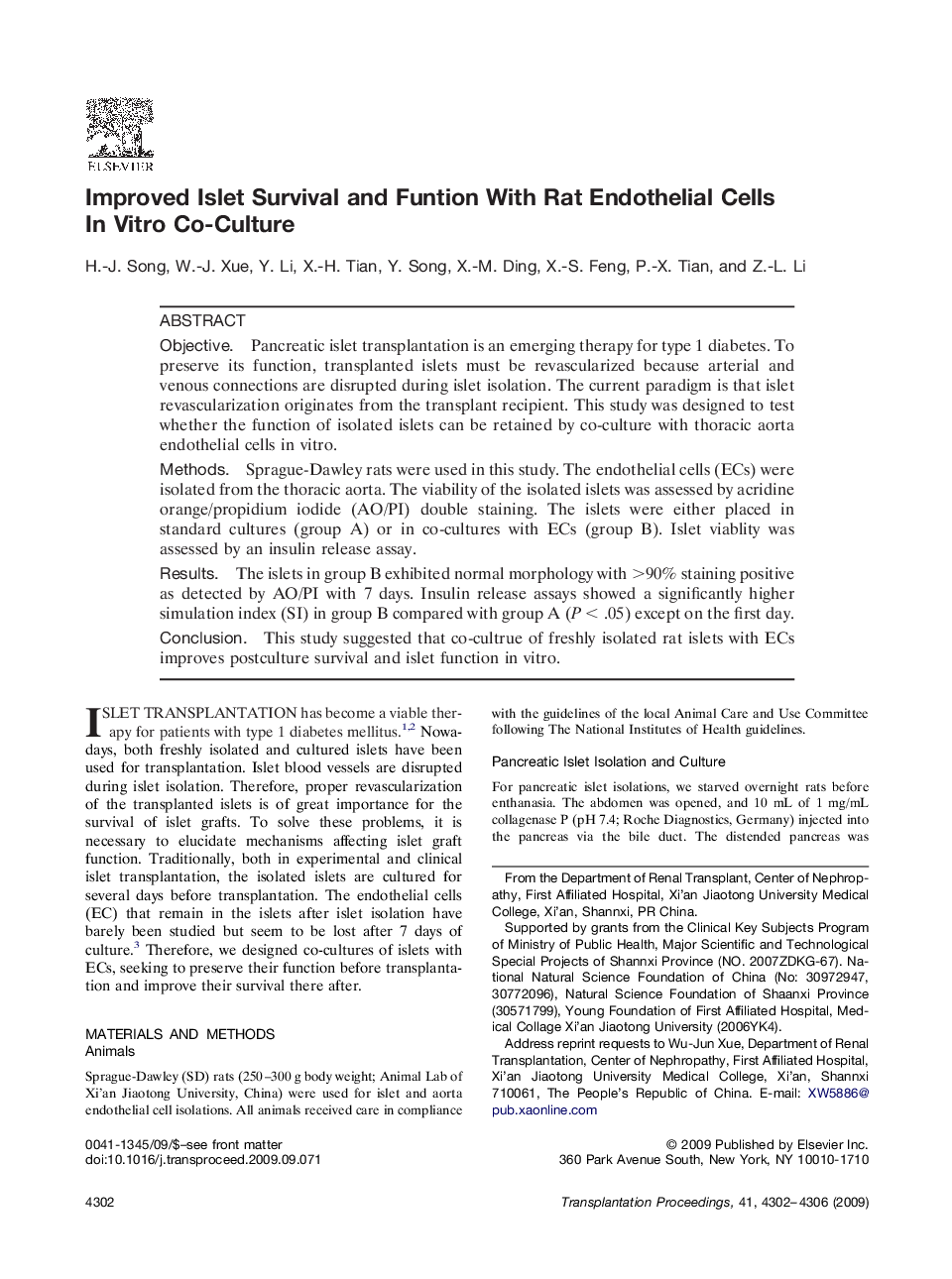| Article ID | Journal | Published Year | Pages | File Type |
|---|---|---|---|---|
| 4258508 | Transplantation Proceedings | 2009 | 5 Pages |
ObjectivePancreatic islet transplantation is an emerging therapy for type 1 diabetes. To preserve its function, transplanted islets must be revascularized because arterial and venous connections are disrupted during islet isolation. The current paradigm is that islet revascularization originates from the transplant recipient. This study was designed to test whether the function of isolated islets can be retained by co-culture with thoracic aorta endothelial cells in vitro.MethodsSprague-Dawley rats were used in this study. The endothelial cells (ECs) were isolated from the thoracic aorta. The viability of the isolated islets was assessed by acridine orange/propidium iodide (AO/PI) double staining. The islets were either placed in standard cultures (group A) or in co-cultures with ECs (group B). Islet viablity was assessed by an insulin release assay.ResultsThe islets in group B exhibited normal morphology with >90% staining positive as detected by AO/PI with 7 days. Insulin release assays showed a significantly higher simulation index (SI) in group B compared with group A (P < .05) except on the first day.ConclusionThis study suggested that co-cultrue of freshly isolated rat islets with ECs improves postculture survival and islet function in vitro.
